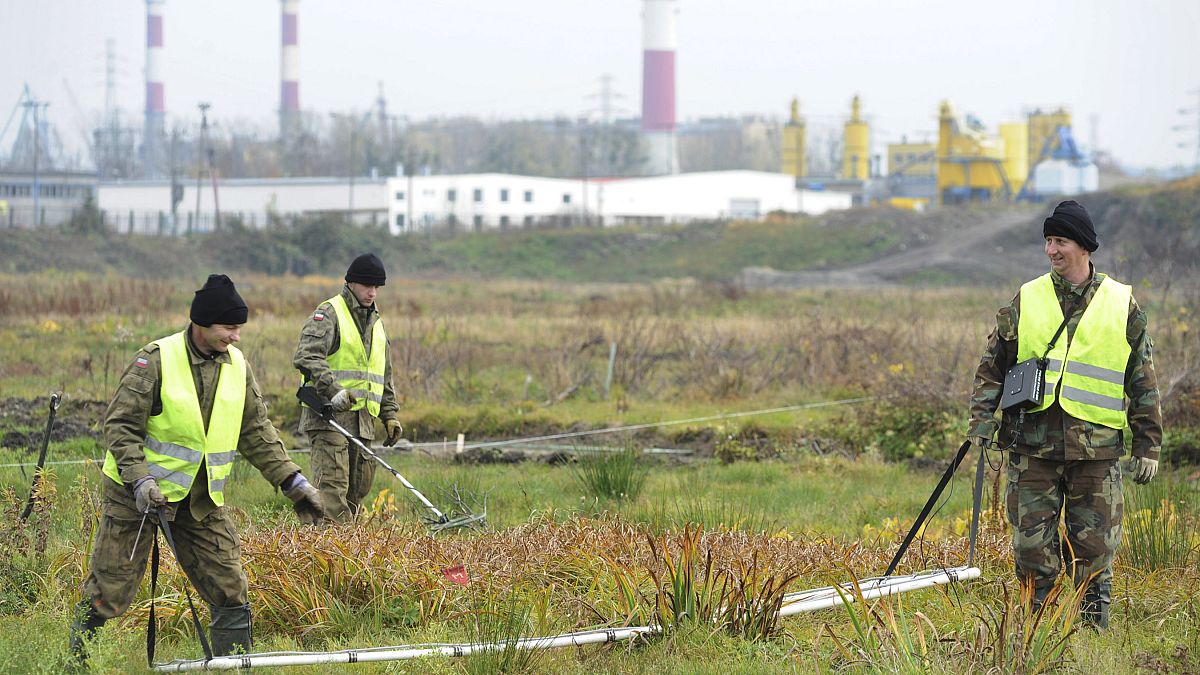Construction work in Wrocław's central Staszica Square uncovered a massive bomb which had sat undisturbed since World War II. Authorities have ordered an evacuation until sappers secure the area.
Thousands of residents of Poland's main southeastern city were evacuated from its central area on Friday after construction workers stumbled upon an unexploded quarter-tonne aerial bomb from World War II.
Poland's armed forces have confirmed it is a German SC-250.
Buses were organised to take the evacuated residents to a safe area while bomb removal experts worked at the scene. Train traffic also had to be halted until the bomb was removed, according to Polish media reports.
Police issued a public call to evacuate, citing “the threat to human health and life caused by unexploded ordnance.” A police spokesperson, Aleksandra Freus, told broadcaster TVN24 that not all residents agreed to leave their homes and that authorities could not force them to do so.
Buses will be on standby for those who choose to evacuate the area later in the day.
Local Polish outlets report that the sappers are facing a difficult situation due to the bomb's size and its peculiar position, which requires additional digging to access parts of it found underground.
They also report that even thought the bomb is likely inactive or dead, it carries a large load, meaning it could still cause significant damage if exploded.
During World War II, Wroclaw was a German city and was known as Breslau. It saw heavy fighting and widespread destruction, coming under heavy Soviet bombardment before Germany's surrender.
The city became part of Poland when borders were redrawn after the war, with the defeated Germany forced to give up territory.
As recently as 21 May, a smaller unexploded bomb was found near the railway station in Poznan.
